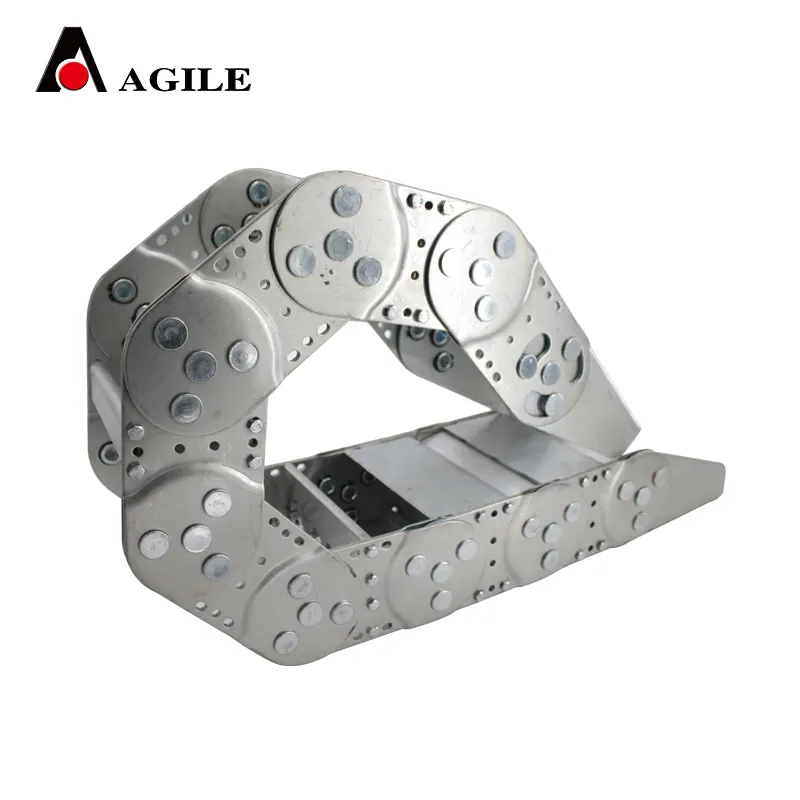chip screw conveyor
Understanding Chip Screw Conveyors A Comprehensive Overview
In the realm of material handling and processing, chip screw conveyors play a crucial role in the efficient movement of bulk materials. Commonly used in industries such as manufacturing, metalworking, and recycling, these conveyors are designed to transport chips, shavings, and other small particles from one location to another. This article explores the intricacies of chip screw conveyors, including their design, functionality, advantages, and considerations for selection.
What is a Chip Screw Conveyor?
A chip screw conveyor, also known as a spiral conveyor, is a type of conveyor system that utilizes a rotating helical screw blade, known as a flight, to move materials. The design allows the conveyor to transport materials at a controlled rate and over various distances. The screw is housed within a tubular or trough-like casing, and as it rotates, it effectively pulls the materials along the conveyor path. The simplicity of the design is complemented by its ability to operate in both horizontal and inclined positions, making it versatile for different applications.
Key Components of Chip Screw Conveyors
1. Screw Flight The helical blade is the heart of the screw conveyor, providing the mechanism for material movement. The pitch, diameter, and thickness of the flight can vary based on the material being conveyed and the distance to be covered.
2. Housing This is the protective casing that contains the screw. It is typically constructed from sturdy materials to withstand wear and tear caused by the abrasive nature of the chips and shavings being transported.
3. Drive Mechanism A motor drives the screw, ensuring a consistent rotation speed. The choice of motor and its specifications depend on the volume of material and the desired transportation speed.
4. Inlet and Outlet Sections These are strategically placed to facilitate the entry and exit of materials. The design may include options for multiple inlets and outlets, allowing for flexibility in material feeding and discharge.
Advantages of Chip Screw Conveyors
- Efficiency Chip screw conveyors are highly efficient for moving bulk materials. Their continuous operation allows for steady material flow, reducing downtime in production processes.
- Space-saving Design With the ability to operate in inclined positions, these conveyors occupy less floor space compared to traditional belt conveyors, making them ideal for facilities with space constraints
.chip screw conveyor

- Versatility They can handle a wide range of materials, from metal shavings to plastic chips, adapting to various industrial needs.
- Reduced Labor Costs Automating the transport of materials frees up human resources, allowing workers to focus on more critical tasks in the production process.
- Minimal Maintenance Designed for durability, chip screw conveyors require less frequent maintenance compared to other conveyor systems, leading to cost savings in the long run.
Considerations When Selecting a Chip Screw Conveyor
Choosing the right chip screw conveyor involves several key considerations
1. Material Type Different materials may require specific flight designs or housing materials to prevent wear and ensure efficient transport.
2. Conveyor Length and Angle The length of the conveyor and the angle of inclination can significantly affect performance. This requires careful planning to ensure optimal flow without blockage or backflow.
3. Capacity Requirements Understanding the volume of material to be moved is crucial. Conveyors are available in various sizes and capacities, meaning the selection must align with operational demands.
4. Environmental Factors Consideration must be given to the operating environment, including temperature, moisture levels, and the presence of corrosive substances that may impact material choice and conveyor longevity.
5. Budget Constraints While it’s important to invest in quality equipment, setting a budget that balances performance and cost is essential for any business.
Conclusion
Chip screw conveyors represent a vital component in the material handling landscape, offering an efficient, space-saving, and versatile solution for transporting bulk materials. By understanding their design and functionality, as well as considering crucial selection factors, businesses can enhance their operations, streamline processes, and improve productivity. As industries continue to evolve, the demand for reliable and effective material handling solutions like chip screw conveyors will undoubtedly grow, making them an integral part of modern manufacturing and processing environments.








